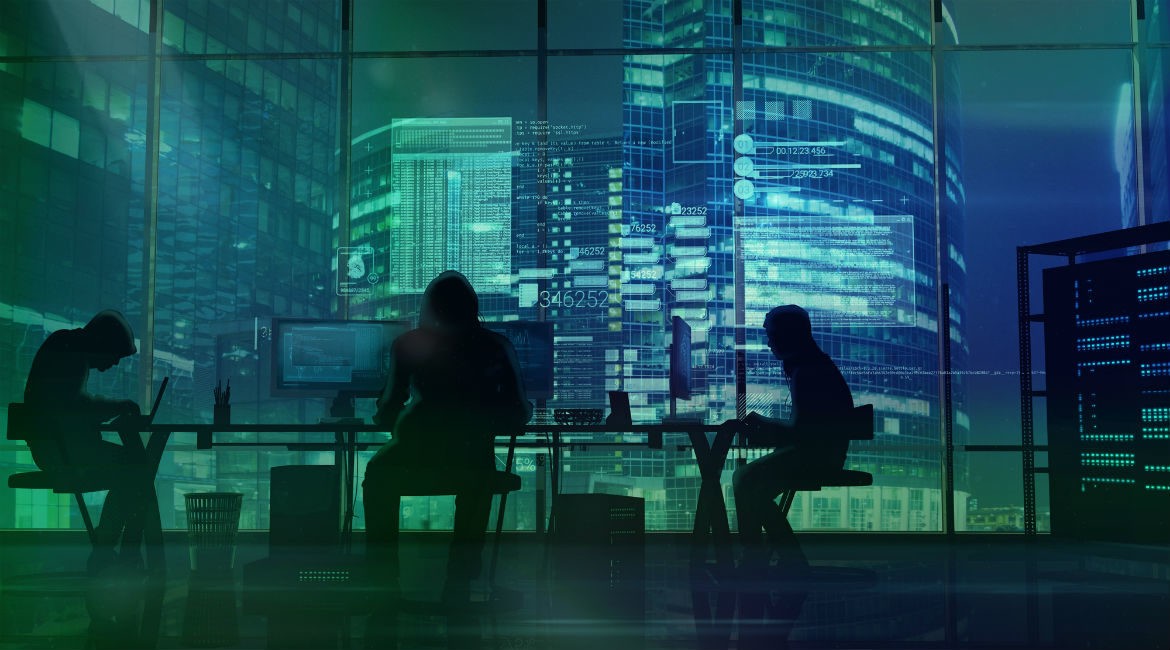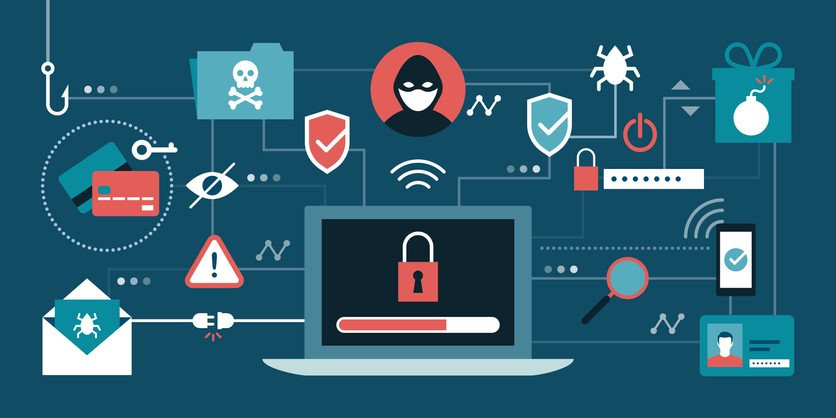Private Equity Cybersecurity
We refer to private equity as an alternative investment class. This is the capital that isn’t publicly traded on the stock exchange. Since these assets are complex in nature, they carry a degree of risk.
They need to be carefully monitored and protected because they’re vulnerable to cyberattacks. The importance of cyber insurance is non-negotiable!
As with dealing with all financial assets, you have to rely on a top IT company to provide you with the best cyber protection. That’s the only way to ensure the safety of your assets.
Keep Your Private Equity Firm Safe!
Triada Networks can be your partner that will provide long-term protection!
We have more than twenty years of experience working with financial firms, so you can be assured that we’ll take care of your every need.

Private Equity Firms and Portfolio Companies
A private equity investment is made by a private equity firm, a venture capital firm, or an angel investor. These investors buy equity securities and debt in operating companies or invest directly in private companies, providing capital for new technology, acquisitions, working expenses, or for restructuring the company in total.
Investors usually operate via a private equity fund that’s organized as limited partnerships. The fund generally consists of limited partners (“silent partners”), who own 99% of shares but have limited liability, and general partners, who own 1% of the share and have full liability.
General partners are responsible for operating the investment (private equity), managing the company’s debt and other obligations.
Private equity firms (PE firms) hold an interest in portfolio companies. The goal of PE firms is to increase the value of portfolio companies and earn a return through a sale. The most common way to invest in a portfolio company is by providing venture and growth capital or by using acquisition strategies such as leveraged buyout.
PE firms usually acquire portfolio companies for a specific period (5-7 years) with the plan of exiting the investment by:
- Offering the shares of the company to the public. Initial Public Offering (IPO) provides one of the highest returns compared to other exit strategies if the market conditions are favorable.
- Selling the company to a strategic buyer. A strategic acquisition or trade sale will provide the profit from the share based on the sale value. This is one of the most popular exits for private equity funds.
- Selling the company to another PE firm.
- Selling the equity stakes to the management of portfolio companies.
- Liquidating the company and distributing its assets – the least favorable option for both the PE firm and the portfolio company.
Dangers of Cyberattacks for Financial Firms

As you can see, PE companies are dealing with sensitive data that mustn’t be compromised.
The entire investment could sink, and the consequences could be immeasurable if the company is lacking cyber protection. That’s why creating a cybersecurity strategy for both the portfolio companies and PE firm’s own operations is of utmost importance.
The biggest cybersecurity threats for private equity firms revolve around data breaches. Reoccuring breaches have an impact on the entire value of the portfolio company and consequently on the fund’s investment. With exposure to cyber threats, you’re risking the damages, which might force you to exit the investment with a loss!
Cybercriminals often view private equity firms as the weakest link. PE funds are more prone to attack because they usually lack protection.
However, an effective cybersecurity strategy serves as a shield for these attacks and will ensure data protection on every level.
Identifying the Main Cybersecurity Risks
To protect yourself against the data breach, first, you have to identify the cyber risks and main threats. Here are the two most common cyber threats that private equity organizations need to keep an eye on.
Malware: Viruses, Spyware, and Ransomware

Malware attacks are common threats for all businesses. This software aims to damage a computer or information system. It’s very prevalent, but there’s a difference between specific types of malware.
The ones that generally affect financial institutions the most are viruses, spyware, and ransomware.
Viruses are types of malware that alter code and software information to prevent the functioning of the device. The files get infected through malicious code, which could spread across the entire network. If you get attacked by a computer virus, your important business files will be deleted or seriously damaged, forcing large capital losses on the fund.
Cyber attackers use ransomware to restrict access to computer systems and demand money in order to remove the restriction. This malicious software usually accesses your computer on the back of computer worms.
After the breach, your files get encrypted, and you get a message informing you of the attack. Attackers then demand the payment in exchange for the key that can decipher the files.
Lastly, private equity firms should be aware of spyware. This software is used to secretly record everything that happens in your computer system, from the actions performed on a computer to the contents of the hard disk.
Spyware gathers information on passwords, financial details, and other sensitive data. Since it’s often unnoticed by the user, spyware is a big concern for financial institutions. You might not even realize that someone is stealing your data!
DDoS Attacks
A distributed denial-of-service is aimed at overloading the servers and temporarily (or indefinitely) disrupting the network of the targets.
The companies aren’t able to provide their service for clients after that because the system is flooded by superfluous requests from many different sources.
The trade is disrupted because legitimate requests can’t be fulfilled or the server is crashing from excessive traffic.
For financial firms, DDoS attacks can lead to loss of data and revenue, together with serious damage to the business reputation.
How to Protect Your Private Equity Firm From Cyberattacks?
To protect your sensitive information, you need the right IT security. Your systems need to be up-to-date with the latest protection systems provided by your IT department or external IT support. Make sure you choose a reliable IT provider that will implement cybersecurity measures and protect your systems from threats. At the bare minimum, your IT security partner should provide you with the following.
Secure Cloud Solutions
Cybersecurity risks can be avoided with secure cloud systems. You need to prevent unauthorized access at the very start: the data stored in the cloud. By using the latest technology solutions, you can protect yourself from even the tiniest risks. Implementing threat detection technology is one of the best practices for PE funds, portfolio companies, investors, and businesses in general.
Back-Up Plan
You should never be forced to pay the ransom. You can’t allow criminals to get away with extortion by using malicious software. Instead, make sure you have backup copies of your files and databases so you can reboot your system and save your important business information.
Malware Monitoring, Detection, and Removal
If you monitor the risk of malware, you’ll be able to prevent cyberattacks on your systems and come up with solutions to threats on time. Firewall encryption and protection programs are crucial for leading this battle for cybersecurity across various industries. Since the financial industry is a popular target for cybercriminals, your IT service must include network protection on all levels. It’s also very important that your IT provider uses reliable malware removal technologies.
Password Protection
To further secure your sensitive information, you have to make sure it’s protected with strong passwords. Implementing password policies and adding multi-factor authentication systems will hugely boost your cybersecurity measures. It’s a lot like having a lock on your front door. You might still have burglars, but you’ll be much more protected than without a lock at all!
Employee Education on Cybersecurity
Firewalls and security software are the main parts of cybersecurity, but employee education is equally important. If the employees aren’t trained to recognize cyber threats, how could they avoid them?
Individuals in the firm play a huge role in your security plan.
Employees need to know what phishing is so they don’t open a suspicious email or click on an unconfirmed attachment. People should also know what types of malware exist so they can recognize these threats.
Individuals could make mistakes not because they have ill intent but because they lack knowledge about cyber risks. So, to protect your firm, you must provide people with quality cybersecurity training that covers various topics, from email to social media threats.
Essentially, you must strengthen the weakest links in the chain of cyber defense.
Final Thoughts
Implementing these cybersecurity strategies should be your top priority.
Otherwise, you’re risking serious damage, from your business reputation to the revenue. If you lack the time and experience to tackle these issues, your approach to cybersecurity can be finding a reliable IT partner. Outsourcing these efforts to IT experts will keep you safe and protected from threats.
Triada Networks can be your partner that will provide long-term protection. We have more than twenty years of experience working with financial firms, so you can be assured that we’ll take care of your every need. Our job is to make sure you can perform your business activities safely and with ease!
To start a conversation with us and secure your PE firm, schedule a free consultation today!
Keep Your Private Equity Firm Safe!
Triada Networks can be your partner that will provide long-term protection!
We have more than twenty years of experience working with financial firms, so you can be assured that we’ll take care of your every need.

